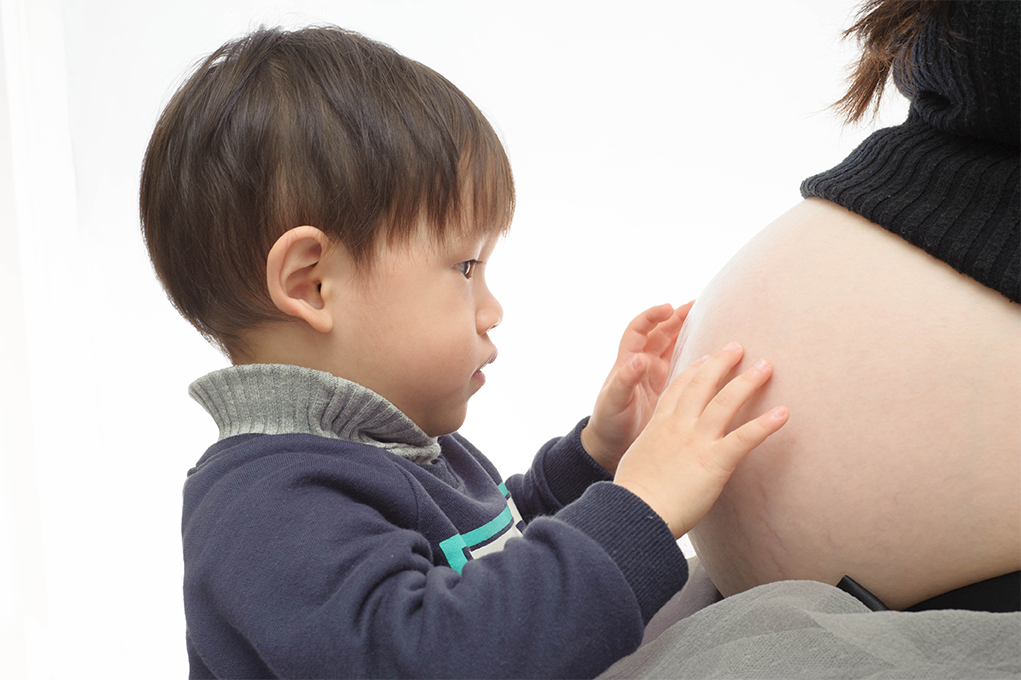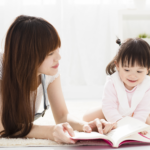So you’ve just gotten the news that baby number two is on the way! As a parent for the second time round, you’re probably just as thrilled. Perhaps you’re even more assured than before. After all, you have (somewhat) gotten used to the crazy demands of looking after a newborn.
But alas, you can’t quite ignore the anxiety that comes with having to tell your first child about the new baby. Will your older child feel jealous? Will it affect your relationship with him or her? Most of us would agree that sibling rivalry is all too real. You may have witnessed it first-hand amongst your own siblings, or seen your friend’s children squabbling relentlessly. Don’t fret though! We’re here to help, with advice on preparing your child for a new addition to the family.
 Why prepare?
Why prepare?
Like it or not, older children will be affected by the arrival of a new baby. “Depending on their personality and sense of security, they could respond in a range of ways ─ ranging from curiosity and excitement to possessiveness or jealousy,” observes Cheryl Ng, principal trainer and parenting expert at Focus on the Family Singapore. As such, it’s crucial to nip negative feelings in the bud. Rather than letting jealousy or resentment breed, preparing your children early so they’ll react in a positive way.
Cushioning the news
Before making the big announcement, it may be helpful to introduce the concept of “having a baby” to your child. A great way to do this is through age-appropriate children’s books. “Parents can read about how families react to and prepare for a baby,” suggests Cheryl. “The emotions could be worked out with toy family sets as well.” Possible books include I’m a Big Brother by Joanna Coles or Best-ever Big Sister by Karen Katz, offers Gerry Koh, mum to three kids aged four, 10 and 12.
When it comes to breaking the news, ensure they hear it directly from both you and your spouse. Discovering it from a relative or friend may leave them feeling shocked, not to mention excluded from the family. As you’ve probably observed, kids are pretty perceptive little people! They’ll be eager to know why mummy’s belly keeps growing, or why she needs to visit the loo more than usual.
So…mummy and daddy have exciting news!
Many parents agree that simple is the way to go when breaking the news. If your little one is under three years old, do acknowledge that it’ll take some time for them to get used to the idea of a sibling. “We simply pointed to my tummy and told him that “Meimei” (little sister) is inside, that he’s going to be a “korkor” (big brother),” relates Ng Huilin, currently eight months pregnant and mother to a 1.5-year-old son. “I definitely kept it simple,” Gerry agrees. “Also, I accentuated the positives by telling my daughter that she’ll have someone new to love. In that way, she’ll see having a sibling as a privilege or gift.”
If your child is around four years or older, they may be more curious. Patiently take their questions and explain that babies need milk, diapers and that they sleep a lot, says Gerry. You can also remind them that new babies need lots of attention, and that they received the same treatment as a newborn. Now that they’re a big boy or girl, they don’t need that help anymore. In that way, they’ll better understand the demands of looking after a younger sibling, and won’t feel resentful about them stealing the spotlight.
Before childbirth
There’s no denying that pregnancy can be downright exhausting. With your energy levels at an all-time low, we suggest getting daddy and other relatives to spend more time with your older child. “Time with my older daughter was reduced even before my younger son came along,” recalls mum Cynthia Ang. “As such, my husband took my daughter out quite frequently, so she didn’t feel like she had nobody to play with.”
One way to get them excited is to have them tag along for prenatal appointments so they can get to know their new sibling firsthand. “We showed my daughter the ultrasound pictures, let her touch my belly, hear the baby’s heartbeat and introduce herself to the baby when it kicked,” says Gerry. “For a very young child, flipping through their own baby album might help them visualize things better.”
A gift exchange is another great (not to mention adorable!) way of fostering the sibling bond. Giving your older child a gift when they first visit the newborn allows them to feel special and participate positively in welcoming the new arrival, observes Cheryl. If your child is old enough to work on simple crafts, have him or her prepare one for the baby. If not, bring them along when gift-hunting.
Never miss a parenting story with the Wonder Years newsletter! Sign up here.
After bringing the baby home
Don’t forget to help your child adjust to changes after childbirth. Make a conscious effort to spend time with your older kid, and let them feel they’ve got important role to play. “We always tried to give my firstborn daughter a lot of attention and got her involved in looking after the baby (e.g. diaper changing, bathing),” recalls Aggy, mum to 6 kids aged 3 months to 10 years. “When I was feeding the baby, I let her sit next to me and read stories together too.”
Display of affection work wonders for fostering sibling bonds as well. Encourage your child to interact with the baby, whether it’s through touching, cradling, or hugs and kisses. Extend any compliments that the baby receives to include them, and make them feel good by telling them all the fun things they’ll get to do with their new sibling. After all, we know how kids love a fellow playmate and “partner-in-crime”!
Don’t sweat it!
Last but not least, set reasonable expectations. No matter how much preparation you’ve done, expect some mixed feelings from your child, advises Gerry. “Negative reactions include behaviour regression or aggression towards the baby,” adds Cheryl. “Ultimately, older children just need reassurance of love and attention. “ You may recall the uncertainty you felt before your first baby was born. Your child’s probably feeling wary and anxious as well. Let them express their feelings, be patient with babyish behaviour, and remind them that you’re all in this together!























